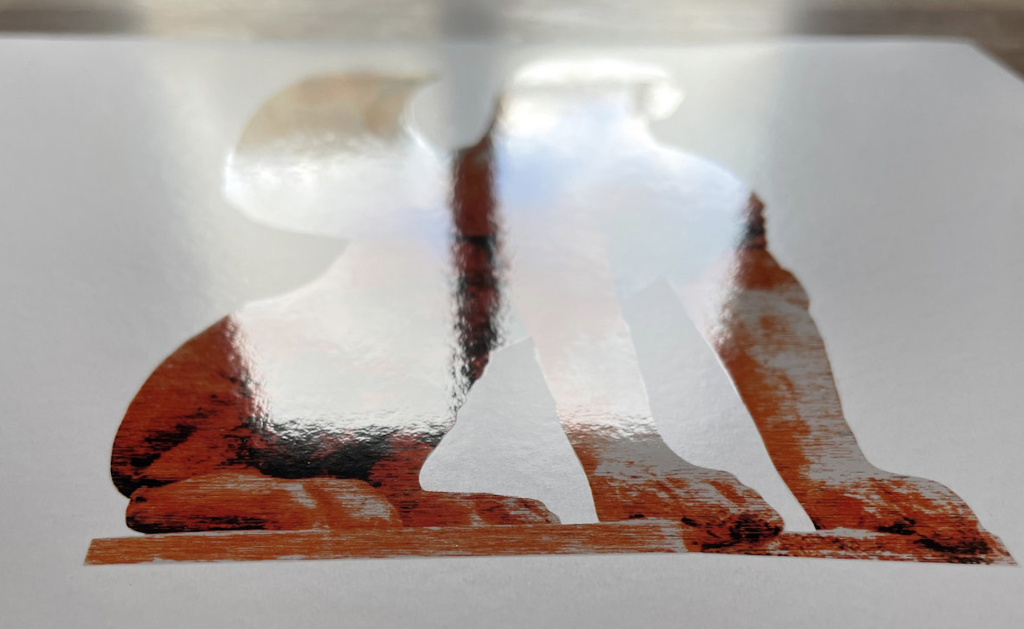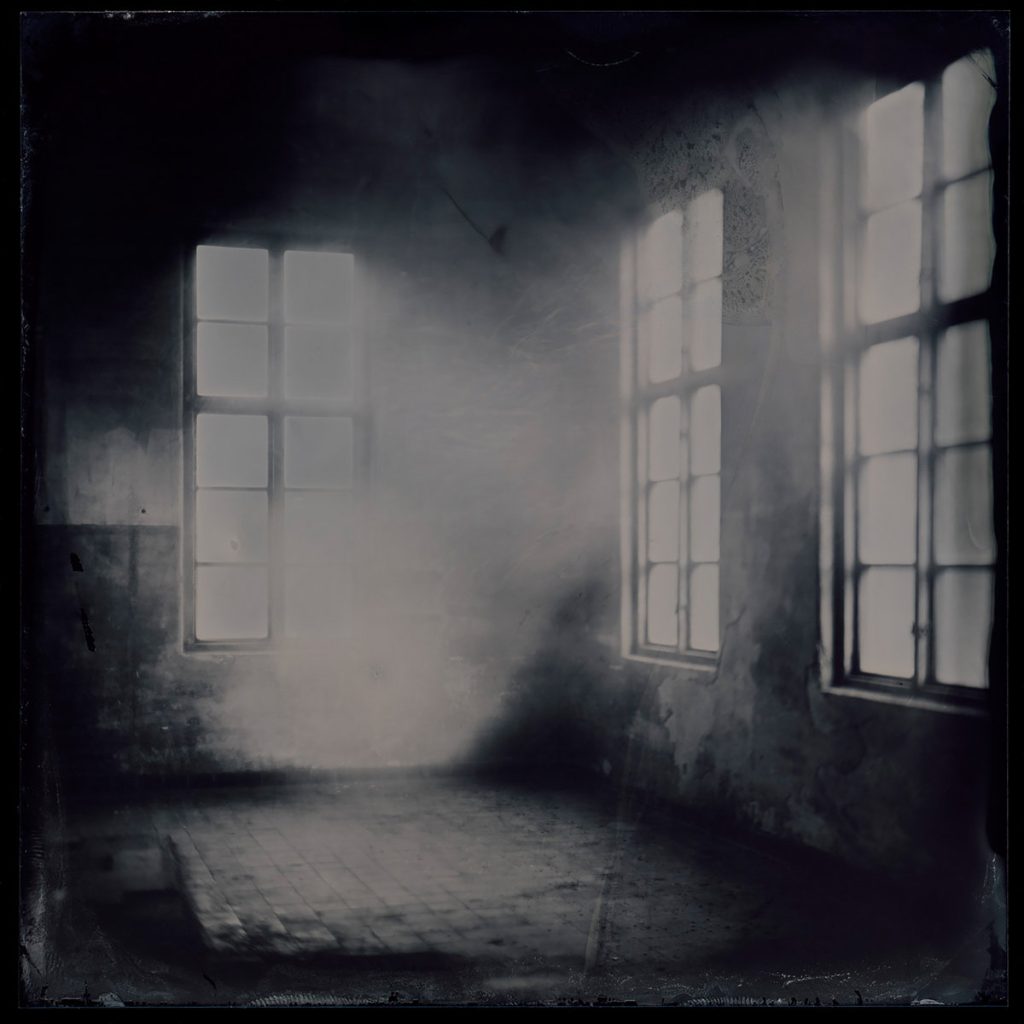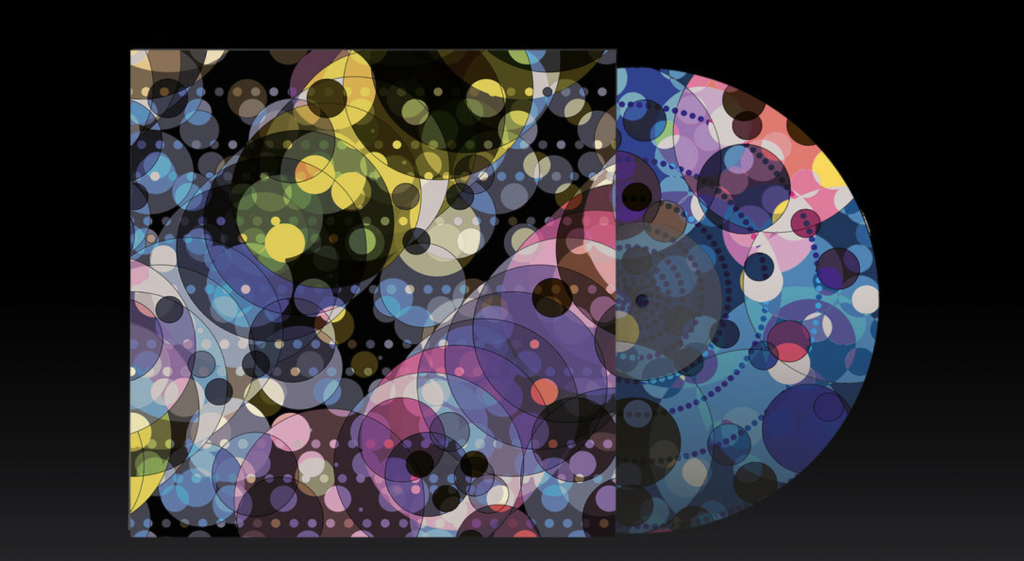Text by Miguel Isaza

The idea of hypnagogia is ubiquitous in the experience of being. It speaks of a state, not properly static but rather procedural, full of dynamics and movement between what we know here and there. Hypnagogia is broadly described as a condition between the waking and dream worlds. Still, more than an interstice, it is an intersection, a movement, a deep crossing between the diverse aspects of the cosmic adventure.
Sound, as an element also ubiquitous, also intercrossed by material and immaterial processes, is suitable for not only proclaiming hypnagogia but for expanding it, leading to an idea of listening conceived as a way of living through sonority and approaching it as a bridge of worlds, profane or sacred, conceptual and non-rational, concrete or spiritual, still or dynamic. An opening to the unknown that is at the same time revelation, a visionary possibility.
In its almost ten years of experience, the Swiss label Hallow Ground has been honouring this open faculty of sonority as a hypnagogic, magic, intermediate portal of expanding our perspectives of reality, our actual definition of it and how we approach the real and unreal as one, allowing sound to be the main strategy for accessing vision from materiality and vice versa.
Run by musician and composer Remo Seeland, the label’s core is a constant question about the possibilities of sound and the proposal of listening as an active, meditative, generative and speculative operation, not rejecting silence nor overrating noise and letting the composed sonic material freely condense the raw and mythic symbolism of artists capable of simultaneously respecting and subverting the boundaries between the esoteric and the exoteric dimensions of sound and technology. In Hallow Ground’s releases, such frontiers appear blurred and reframed under a spectral gathering that always looks for the suggestion but avoids excess, contrary to it, airing attention, detail and depth.
Such heterogeneous sonic alchemy is conjured here on vinyl and digital artefacts, which end up crossing guitars, tubular organs, human and non-human voices, wind instruments, field recordings, analogue distillations, digital composites and a wide variety of both odes and rejections to structure, witnessing a flux of sound rituals in styles as varied as a drone, ambient, voracious experimentation, concrete music or noise.
These are categories that are anything but effective as definitions of the vast realms of textures, epiphanies, and landscapes inside Hallow Ground’s mysticism, as expressed in works by visionaries such as Norman Westberg, Lawrence English, CoH, Reemo Seeland, Miki Yui, FUJI||||||||||TA, Aural Rage, Black Sun Productions, Distant Animals, Laurin Huber, among others, often loaded with a metaphysical intent and unique attention to the listening act, placing it beyond words in an often ineffable narrative, capable of being traced as a truly unique form of the sonic sublime.



How was Hallow Ground born, and what were the main aims behind it?
Hallow Ground was born out of the need to provide a platform for music that moves us to the core. With all-around coherent vinyl releases, where the cover artwork plays an important role, we wanted to make very qualitative contributions to experimental music.
On the more conceptual side, the definition of the label “music and art that leads to visions” is very evocative; could you expand on it? Could you also give us some insight into the artist/release selection process?
The term vision can be understood here very openly but also concretely. Open in the sense that music can and should surpass itself in general. Specifically, certain music has always been used to change the consciousness of the player and/or listener. Due to my background as a culture and religious scientist, I have dealt with ritual and trance techniques for a long time, hence my interest in this approach to music.
If a recording is released on Hallow Ground, it actually has something to do with whether the music engages me, puts me in a different mental state and challenges me intellectually. I’m very sincere about this. And if I’m unsure, I often ask my partner or friends for an additional opinion i. e., experience.
Hallow Ground has been running since 2013; what have been the main challenges for this, and almost 10 years in, how do you see its evolution? (both in sound and curation but also aims and vision?)
The biggest challenge is probably – as is often the case in life – making the right decision at the right moment. We are by no means able to release all the music that is brought to us and convinces us. The evolution can be seen in almost 10 years of label work in the way that we have built up a broad international network of relationships and friendships. In terms of sound and curation, we experienced a fluid development that has increasingly shaped our own vision of the label.
How do you see the label contributing to the current experimental music scene, and in particular in Switzerland?
If you look at our catalogue, you will see that we have enabled some artists to launch an international careers. In Switzerland, too, we occupy a niche that is attracting quite some interest. Many music lovers and artists appreciate the very broad yet defined framework that we have staked out in the field of experimental music.
The latest release Epiphanies is a “concept-compilation”(and first-ever on the label), where the artists were commissioned to pursue a non-rational creative process in approaching the phenomenon of epiphany through sound. What were your main reflections after seeing the results of different artists interpreting the concept of epiphany and putting the compilation together?
That’s a good question. I spent countless hours in the studio curating the wonderful but sometimes quite different pieces. I listened to the music so often and for so long until I heard the various songs have something in common, then I start connecting elements, no matter how marginal they were. So I made my first attempts to work out a suitable sequence with the aim that the entire album, but also each of the four vinyl sides, is positioned in a coherent order. On the basis of the many reactions, from the participants in our deep listening sessions leading up to the release, we seem to have succeeded. It looks as if the release got a kind of life of its own and is understood as a whole. That was exactly my vision for “Epiphanies”.
There seems to be a renewed interest in a new type of technology-informed spirituality and mysticism, even a turn into magic and psychic powers, which many artists are exploring with their practices, maybe as a result of distressful and challenging times. What role do you think experimental music plays/can play in this new way of experiencing spiritual enlightenment?
I’ve been involved in experimental music for over three decades now, and have seen multiple phases of incorporating spiritual themes into this broad genre. I would almost say that spiritual approaches have existed in certain areas—or with some artists—since the beginning of experimental music. In order to substantiate this thesis, one would, of course, first have to define what experimental music is and, even more so, what spirituality exactly means. Personally, I understand spirituality as a hope for salvation or a search for solace, but I prefer to work in terms of sustained focus, mindfulness, or awareness.
What interests me personally about experimental music in relation to “spirituality” or even “magic” is that sound can have a very specific effect on the physique and psyche. Here, experimental music is intended as an experiment, which aims to evoke an extraordinary physical and psychological experience, whether you call it spiritual or not.
I also find enlightenment a bit of a difficult term because it is imprecise, so I prefer the Sanskrit term samadhi, which stands for a long-lasting concentration in which the subjective perception of space and time can be lost. Seen in this way, experimental music could make a very important contribution to such experiences if one is open to the sounds accordingly. If one succeeds in experiencing such states through music, at least to some extent, this can definitely be salutary.
I find the technology-informed approach to “spirituality” to be an exciting field, where there is hopefully still a lot to learn and explore. I am fascinated by the pan-psychic worldview of Tantrism, where sound and body, among other things, form important “tools”. Newer technologies such as AI or AR could be and become new tools for spiritually ambitious people.
Could you tell us a bit more about the coming releases?
The upcoming releases we are currently working on are with returning or new wonderful artists from Switzerland, various European countries, the USA, Lithuania, Armenia, Australia, Iran and China. These help us continue living and develop the vision of Hallow Ground.
And in the bigger picture, where would you like to see taking Hallow Ground into?
I see Hallow Ground as a plant growing in solid ground, with deep roots, a strong trunk and countless fine branches.
The visual side of the label is prominent as well. Could you tell us more about how the label’s visual identity is envisioned?
From the beginning, we gave the same attention to the visual aspect as to the music. Ideally, the cover should continue the music, and both together would make up the final release. One of the most impressive examples here is Ruth Sofer’s artwork for CoH plays Everall, where I can literally hear the music just by looking at the cover. Or the cover of my record Hollow Body which showed the nighttime view from my then studio on the edge of the industrial area in Greenpoint, NYC. In this picture, the entire sounds of the record are preserved for me. I think I got the sounds from this view because I spent hours staring out the window, haha!
How do you cope with digital overload in times of overwhelming digital and screen immersion?
I deliberately go offline and analogue, practice yoga, pranayama and meditation almost daily, and often go hiking in the Alps. I read and listen to records from my collection.
And we couldn’t help but ask, what has been Hallow Ground’s epiphany?
To be a platform for talented individuals and collectives that lead you to extraordinary states of mind through their art.
*Listen to the Hallow Ground mixtape prepared by Remo Seeland here.






